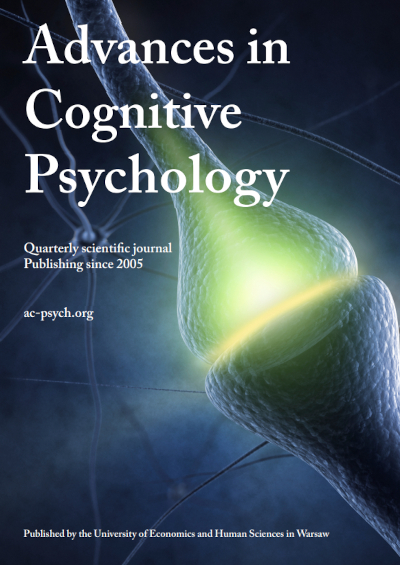Archive of all online content
-
Volume 21 Issue 4
pp. 309-500
(16 November 2025) -
Volume 21 Issue 3
pp. 212-308
(2 September 2025) -
Volume 21 Issue 2
pp. 120-211
(25 May 2025) -
Volume 21 Issue 1
pp. 1-93
(11 March 2025)
-
Volume 20 Issue 4
pp. 237-388
(20 November 2024) -
Volume 20 Issue 3
pp. 158-236
(19 August 2024) -
Volume 20 Issue 2
pp. 80-157
(24 June 2024) -
Volume 20 Issue 1
pp. 1-79
(1 March 2024)
-
Volume 19 Issue 4
pp. 1-105
(27 December 2023) -
Volume 19 Issue 3
pp. 211-333
(25 July 2023) -
Volume 19 Issue 2
pp. 111-200
(30 June 2023) -
Volume 19 Issue 1
pp. 1-110
(31 March 2023)
-
Volume 18 Issue 4
pp. 243-303
(31 December 2022) -
Volume 18 Issue 3
pp. 165-202
(30 September 2022) -
Volume 18 Issue 2
pp. 85-164
(30 June 2022) -
Volume 18 Issue 1
pp. 1-84
(31 March 2022)
-
Volume 17 Issue 4
pp. 250-291
(31 December 2021) -
Volume 17 Issue 3
pp. 193-249
(30 September 2021) -
Volume 17 Issue 2
pp. 99-192
(30 June 2021) -
Volume 17 Issue 1
pp. 1-98
(31 March 2021)
-
Volume 16 Issue 4
pp. 291-369
(31 December 2020) -
Volume 16 Issue 3
pp. 176-290
(30 September 2020) -
Volume 16 Issue 2
pp. 85-175
(30 June 2020) -
Volume 16 Issue 1
pp. 1-84
(31 March 2020)
-
Volume 15 Issue 4
pp. 236-317
(31 December 2019) -
Volume 15 Issue 3
pp. 169-235
(30 September 2019) -
Volume 15 Issue 2
pp. 75-168
(30 June 2019) -
Volume 15 Issue 1
pp. 1-74
(31 March 2019)
-
Volume 14 Issue 4
pp. 150-208
(31 December 2018) -
Volume 14 Issue 3
pp. 62-150
(30 September 2018) -
Volume 14 Issue 2
pp. 38-61
(30 June 2018) -
Volume 14 Issue 1
pp. 1-37
(31 March 2018)
-
Volume 13 Issue 4
pp. 267-322
(31 December 2017) -
Volume 13 Issue 3
pp. 190-266
(30 September 2017) -
Volume 13 Issue 2
pp. 121-189
(30 June 2017) -
Volume 13 Issue 1
pp. 1-120
(31 March 2017)
-
Volume 12 Issue 4 (special issue)
pp. 150-235
(31 December 2016) -
Volume 12 Issue 3
pp. 130-149
(30 September 2016) -
Volume 12 Issue 2
pp. 67-129
(30 June 2016) -
Volume 12 Issue 1
pp. 1-66
(31 March 2016)
-
Volume 11 Issue 4
pp. 118-135
(31 December 2015) -
Volume 11 Issue 3
pp. 64-117
(30 September 2015) -
Volume 11 Issue 2
pp. 31-63
(30 June 2015) -
Volume 11 Issue 1
pp. 1-30
(31 March 2015)
-
Volume 10 Issue 4
pp. 119-155
(31 December 2014) -
Volume 10 Issue 3
pp. 81-118
(30 September 2014) -
Volume 10 Issue 2
pp. 32-80
(30 June 2014) -
Volume 10 Issue 1
pp. 1-31
(27 February 2014)
-
Volume 9 Issue 4
pp. 156-223
(31 December 2013) -
Volume 9 Issue 3
pp. 112-155
(24 October 2013) -
Volume 9 Issue 2
pp. 53-111
(30 June 2013) -
Volume 9 Issue 1
pp. 1-52
(31 March 2013)
-
Volume 8 Issue 4
pp. 267-295
(31 December 2012) -
Volume 8 Issue 3
pp. 210-266
(27 September 2012) -
Volume 8 Issue 2
pp. 70-209
(28 June 2012) -
Volume 8 Issue 1
pp. 1-69
(29 March 2012)
-
Volume 7 Issue 2
pp. 55-156
(31 December 2011) -
Volume 7 Issue 1
pp. 1-54
(31 March 2011)
-
Volume 6 Issue 6
pp. 1-141
(31 December 2010)
-
Volume 5 Issue 5
pp. 1-134
(31 December 2009)
-
Volume 4 Issue 1
pp. 1-14
(31 March 2008)
-
Volume 3 Issue 4
pp. 419-465
(31 December 2007) -
Volume 3 Issue 3
pp. 363-417
(30 September 2007) -
Volume 3 Issue 1
pp. 1-361
(31 March 2007)
-
Volume 2 Issue 4
pp. 239-276
(31 December 2006) -
Volume 2 Issue 2
pp. 99-237
(30 June 2006) -
Volume 2 Issue 1
pp. 1-97
(31 March 2006)
-
Volume 1 Issue 1
pp. 1-16
()
Volume 3 Issue 4 (2007)
The role of spatial and temporal information in biological motion perception
Joachim Lange, Markus Lappe

Markus Lappe, Psychologisches Institut II, Westfälische Wilhelms-Universität, Fliednerstr. 21, 48149 Münster, Germany.
E-mail: mlappe@uni-muenster.de
Point-light biological motion stimuli provide spatio-temporal information about the structure of the human body in motion. Manipulation of the spatial structure of point-light stimuli reduces the ability of human observers to perceive biological motion. A recent study has reported that interference with the spatial structure of point light walkers also reduces the evoked event related potentials over the occipitotemporal cortex, but that interference with the temporal structure of the stimuli evoked event-related potentials similar to normal biological motion stimuli. We systematically investigated the influence of spatial and temporal manipulation on 2 common discrimination tasks and compared it with predictions of a neurocomputational model previously proposed. This model first analyzes the spatial structure of the stimulus independently of the temporal information to derive body posture and subsequently analyzes the temporal sequence of body postures to derive movement direction. Similar to the model predictions, the psychophysical results show that human observers need only intact spatial configuration of the stimulus to discriminate the facing direction of a point-light walker. In contrast, movement direction discrimination needs a fully intact spatio-temporal pattern of the stimulus. The activation levels in the model predict the observed event related potentials for the spatial and temporal manipulations.
Keywords: biological motion, model, task dependency, event-related potentialsAttentional demand influences strategies for encoding into visual working memory
Jutta S. Mayer, Robert A. Bittner, David E. J. Linden, Danko Nikolić

Jutta S. Mayer, Johann Wolfgang Goethe-University, Department of Psychiatry, Heinrich-Hoffmann-Str. 10, D-60528 Frankfurt, Germany.
E-mail: jutta.mayer@kgu.de
Visual selective attention and visual working memory (WM) share the same capacity-limited resources. We investigated whether and how participants can cope with a task in which these 2 mechanisms interfere. The task required participants to scan an array of 9 objects in order to select the target locations and to encode the items presented at these locations into WM (1 to 5 shapes). Determination of the target locations required either few attentional resources ("pop-out condition") or an attention-demanding serial search ("non pop-out condition"). Participants were able to achieve high memory performance in all stimulation conditions but, in the non pop-out conditions, this came at the cost of additional processing time. Both empirical evidence and subjective reports suggest that participants invested the additional time in memorizing the locations of all target objects prior to the encoding of their shapes into WM. Thus, they seemed to be unable to interleave the steps of search with those of encoding. We propose that the memory for target locations substitutes for perceptual pop-out and thus may be the key component that allows for flexible coping with the common processing limitations of visual WM and attention. The findings have implications for understanding how we cope with real-life situations in which the demands on visual attention and WM occur simultaneously.
Keywords: attention, working memory, interference, encoding strategiesElectrophysiological activation by masked primes: Independence of prime-related and target-related activities
Werner Klotz, Manfred Heumann, Ulrich Ansorge, Odmar Neumann

Werner Klotz, Department of Psychology, Bielefeld University, P. O. Box 100131, D-33501 Bielefeld, Germany.
E-mail: werner.klotz@uni-bielefeld.de
Visual stimuli that are made invisible by metacontrast masking (primes) have a marked influence on behavioral and psychophysiological measures such as reaction time (RT) and the lateralized readiness potential (LRP). 4 experiments are reported that shed light on the effects that masked primes have on the LRP. Participants had a go-nogo task in which the prime was associated with 1 of 2 responses even if the target required participants to refrain from responding. To analyze the electrophysiological responses, we computed the LRP and applied an averaging method separating the activation due to the prime and the target. The results demonstrated that (a) masked primes activate responses even in a nogo situation, (b) this prime-related activation is independent of masking, (c) and is also independent of whether prime and target require the same responses (congruent condition) or different responses (incongruent condition).
Keywords: metacontrast, EEG recording, LRP, Go/Nogo


